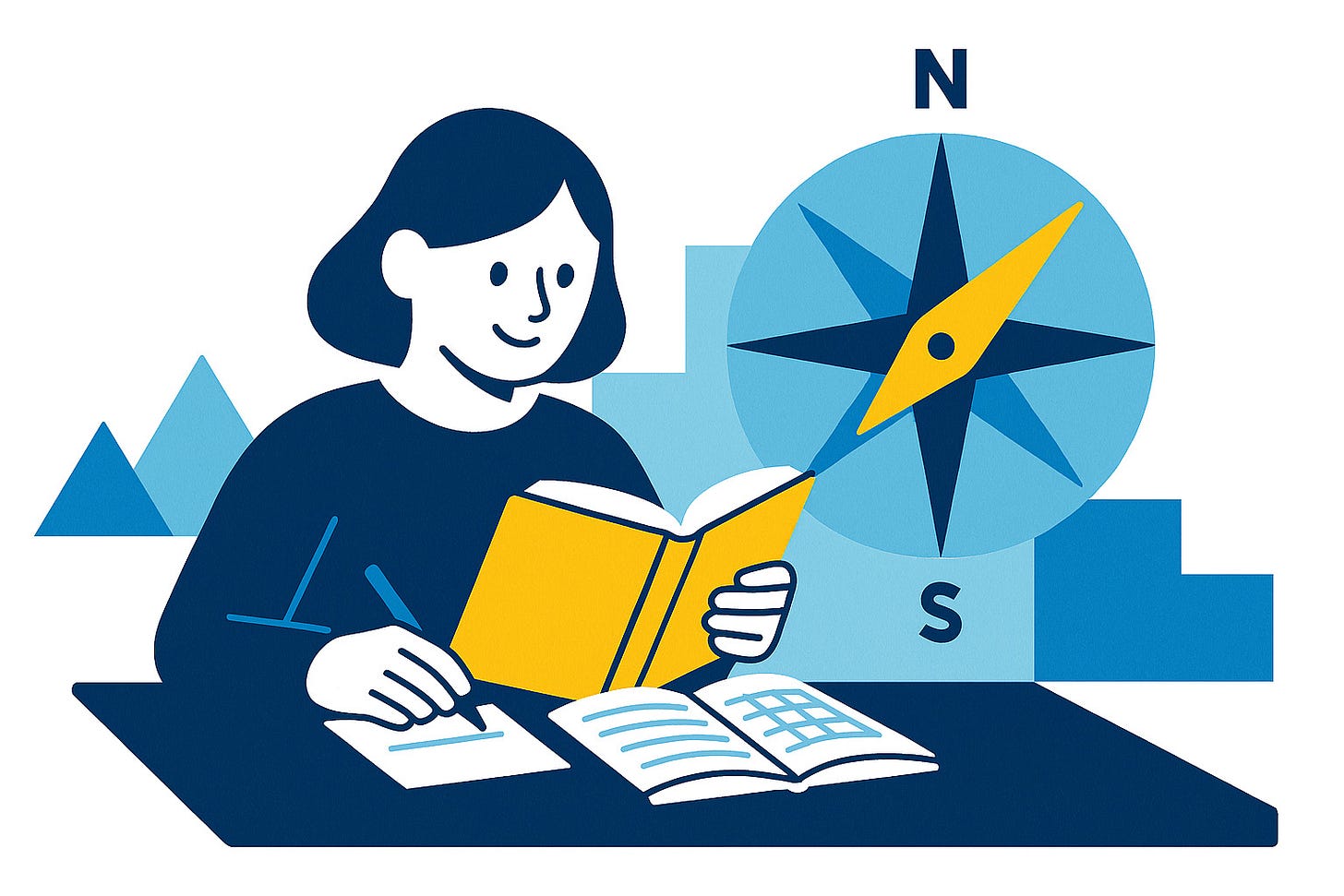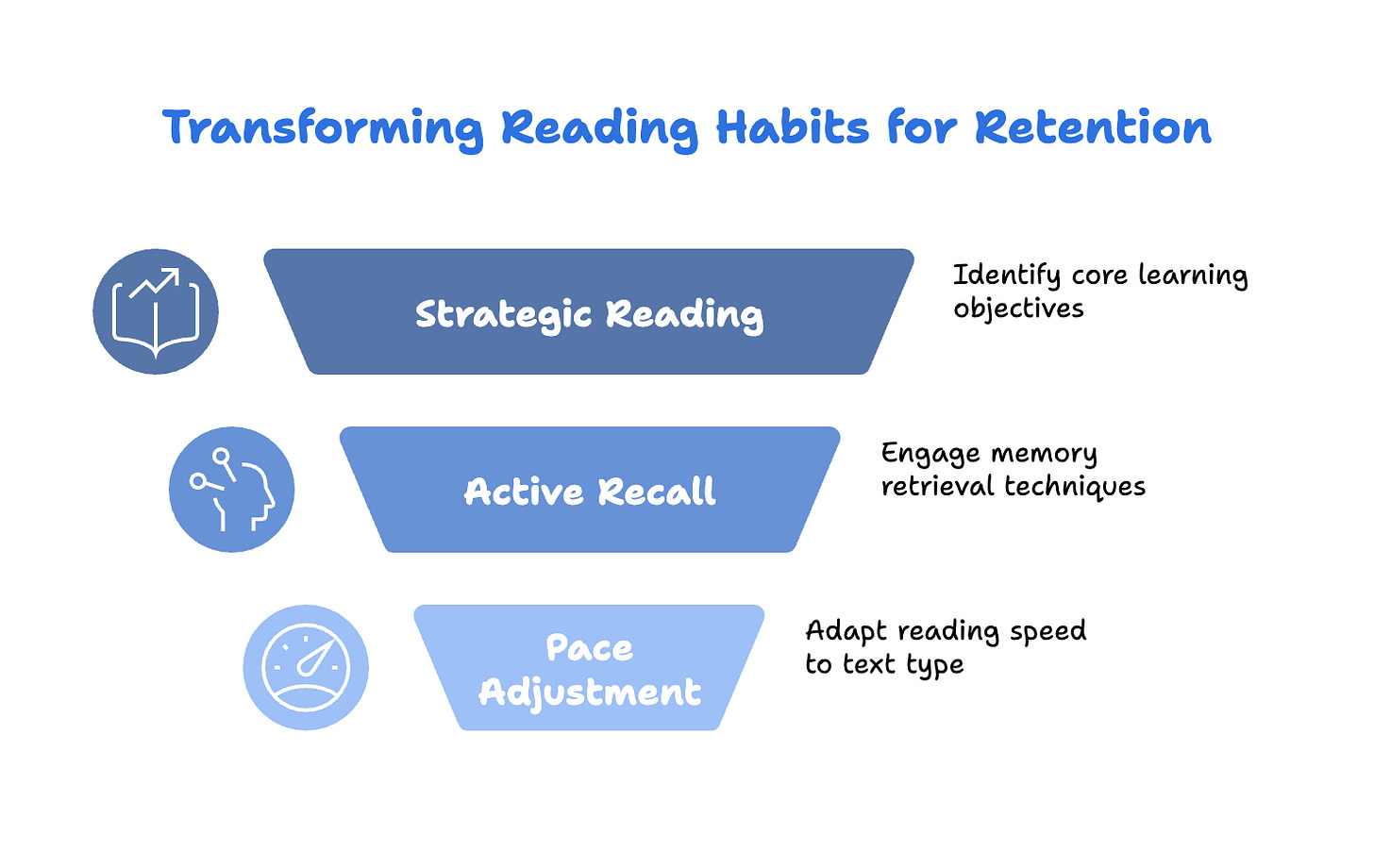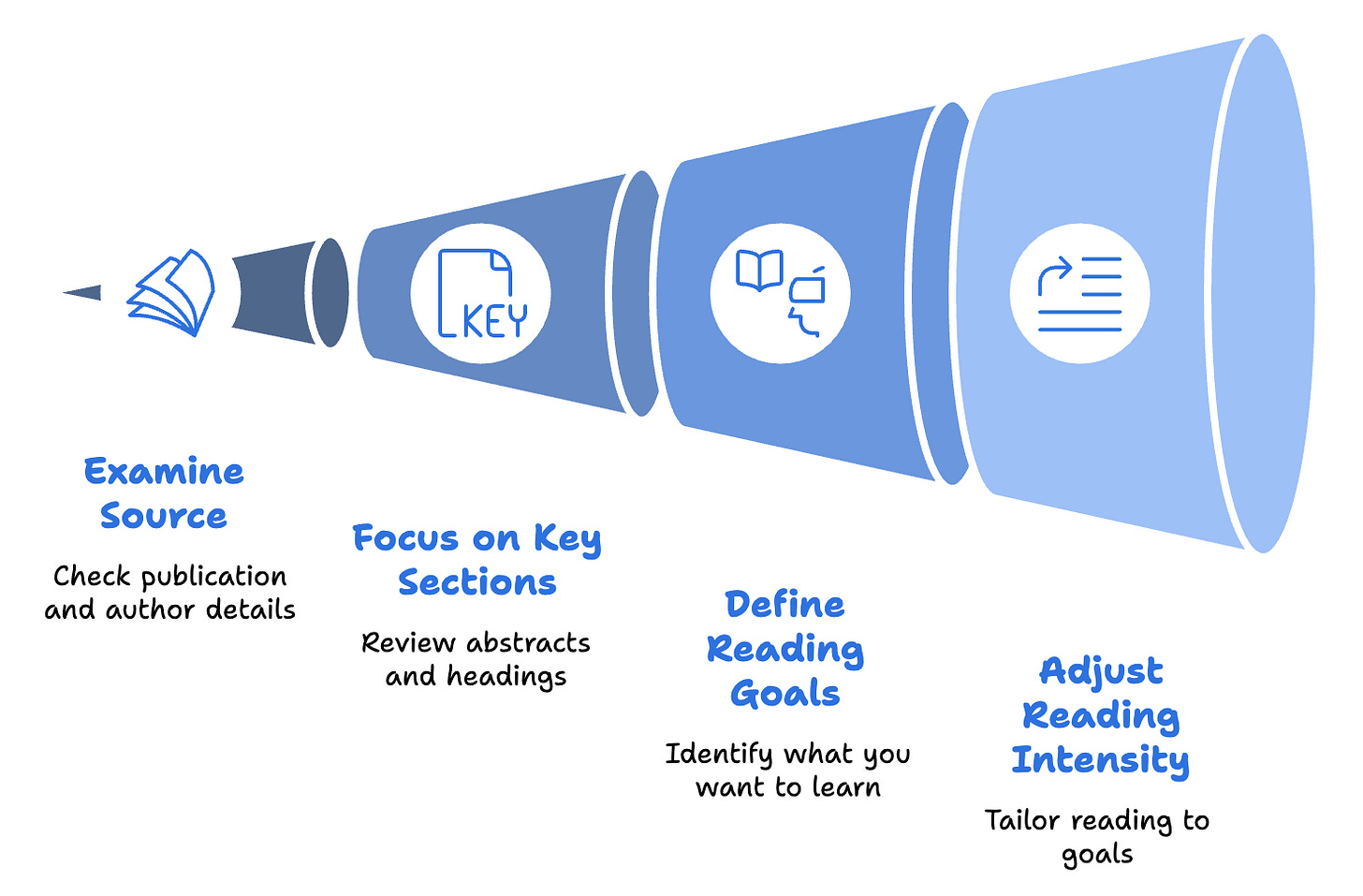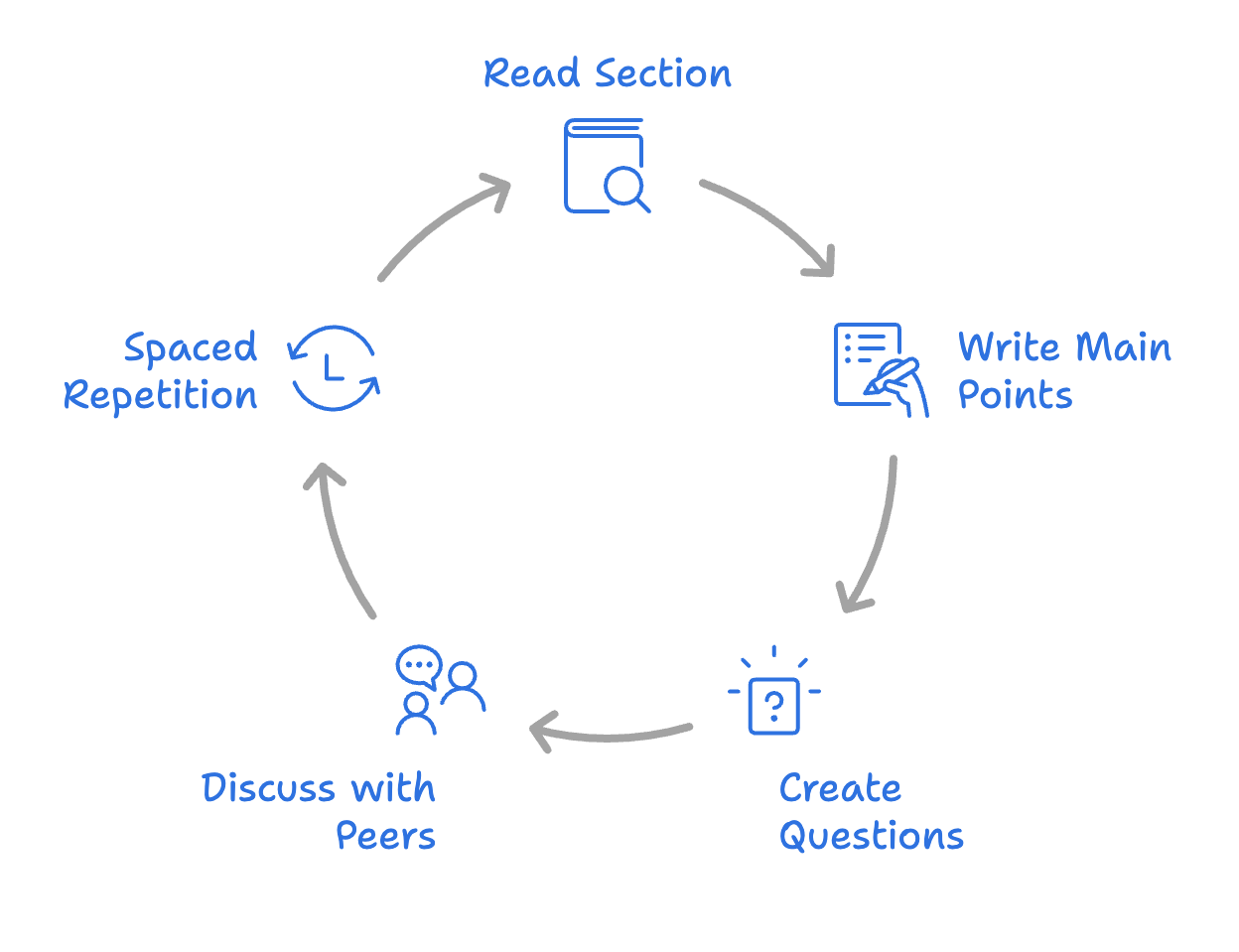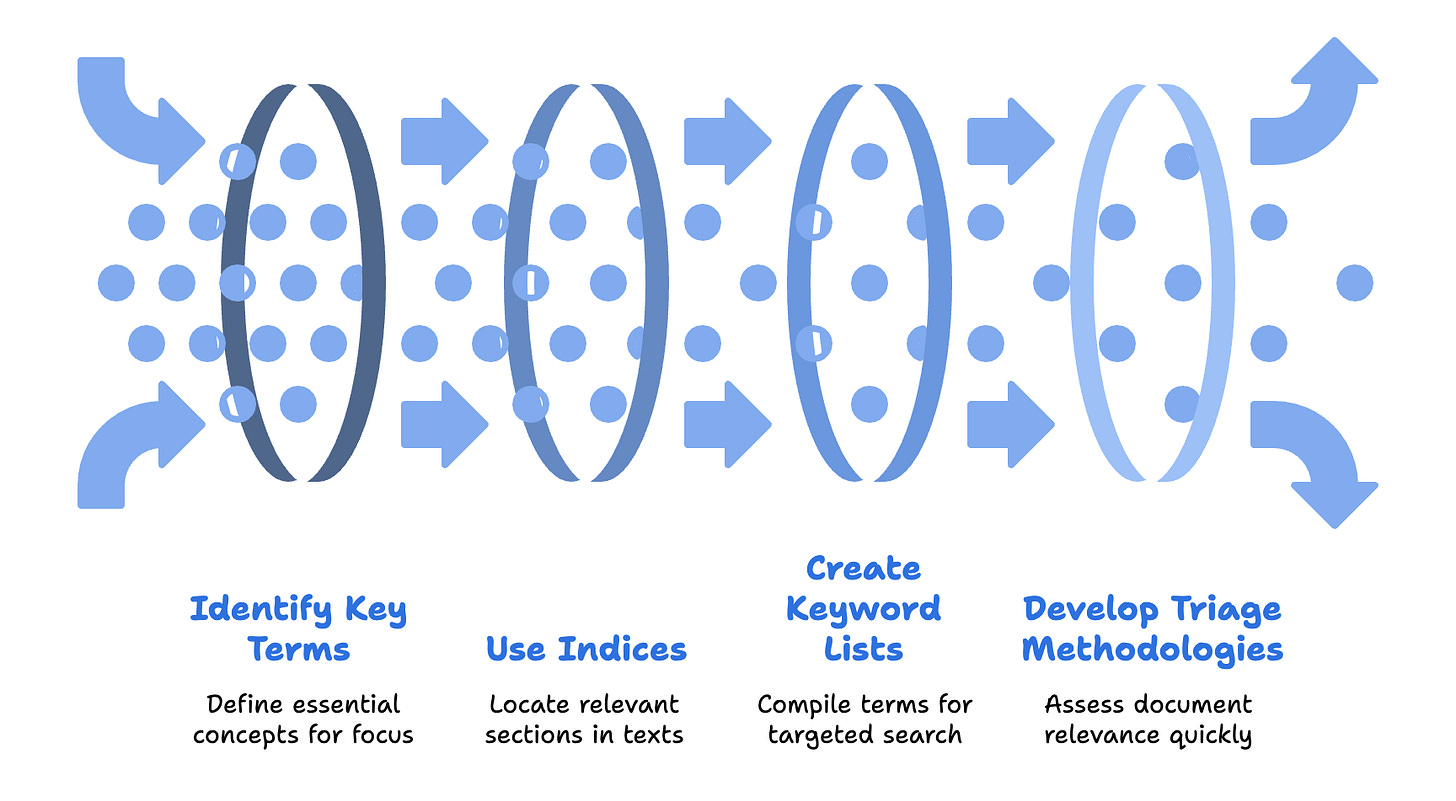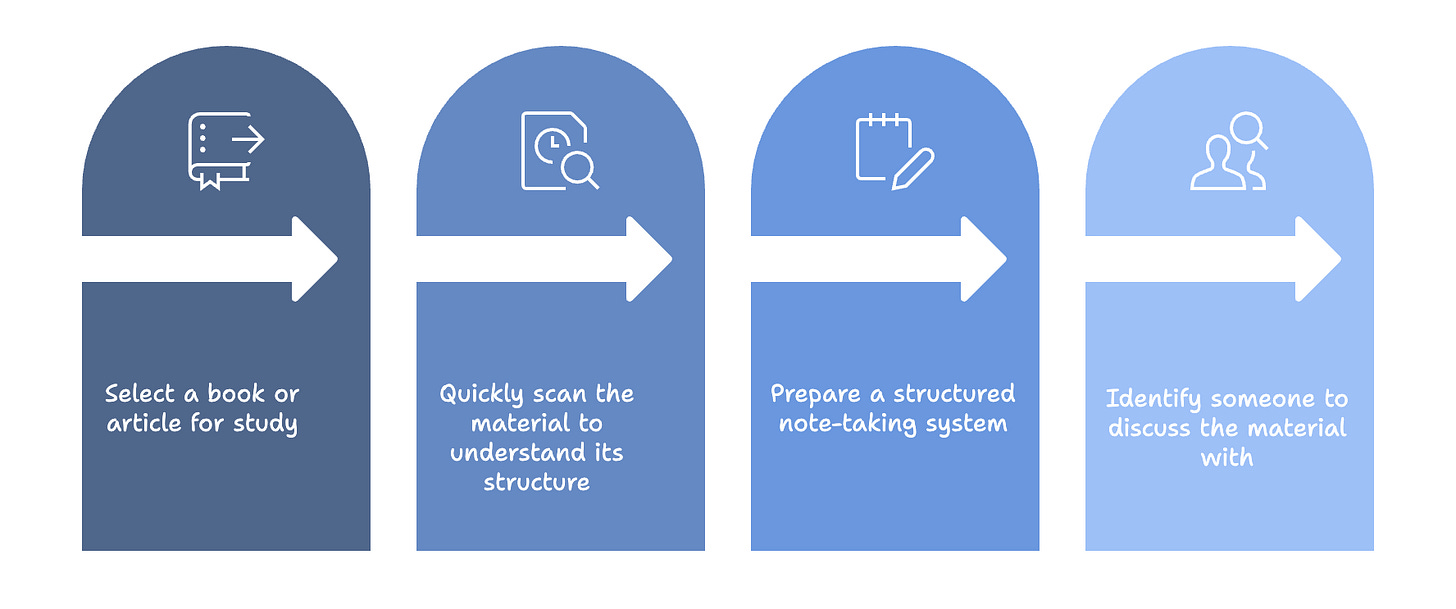The PhD Reading Method That Triples Retention
How Doctoral Students Master Any Subject in Half the Time (And You Can Too)
Hello Kwik Brain,
Have you ever finished reading a book or article only to realize you can barely remember what you just read? You're not alone. Most people approach every text the same way—starting at the beginning and trudging through to the end, hoping something sticks.
But what if I told you there's a completely different approach that doctoral students use to absorb and retain complex information at lightning speed? While the average person forgets 80% of what they read within 24 hours, PhD students have cracked the code on learning that actually lasts.
The secret isn't reading faster—it's reading smarter
The Reading Trap That's Sabotaging Your Learning
Before we dive into the solution, let's address the biggest myths that are holding most people back:
Myth #1: You need to read every word of every page
The truth? Strategic readers recognize that not all assigned readings require the same level of engagement. Doctoral students have learned to "read the syllabus strategically" by determining which materials support core learning objectives versus supplementary information.
Myth #2: Highlighting and re-reading equals better retention
Research shows that active recall mechanisms work by forcing the brain to retrieve information from memory rather than simply re-reading text. This retrieval practice strengthens neural pathways and facilitates the transfer of information from short-term to long-term memory.
Myth #3: You should read everything at the same pace
Different types of reading require different time investments. Academic readers develop expertise in quickly identifying text genres and applying appropriate reading strategies.
The reality is that most people are using outdated reading methods that were designed for a different era. Meanwhile, doctoral students have developed a sophisticated three-part system that maximizes both comprehension and retention.
The Three-Method PhD Reading System
Method 1: Strategic Reading for Purpose
Instead of approaching every text the same way, start with what researchers call the 20-minute preview method. This involves initially spending twenty minutes to assess what you would read if time were limited.
How to implement this:
Examine the publication source, author credentials, and abstract first
Focus on abstracts, discussion sections, headings, and first sentences of paragraphs
Ask yourself: "What am I trying to get out of this material?"
Adjust your reading intensity based on your specific goals
This preview creates a mental framework for deeper engagement and helps you establish reading priorities before diving in.
Method 2: Active Recall Integration
Here's where most people go wrong. Instead of passively consuming information, doctoral students actively test themselves as they read. The Reading Retention Strategy involves answering 3-5 focused questions about important concepts from readings, then sharing and refining answers through peer discussion.
The Active Recall Protocol:
After each section, close the book and write down the main points from memory
Turn key concepts into questions you can test yourself on later
Grab a friend or colleague to discuss what you've read—this social element significantly enhances comprehension and retention
Use spaced repetition by reviewing your notes at increasing intervals
Research shows that collaborative note-taking and discussion significantly enhance comprehension and retention compared to solitary reading.
Method 3: Targeted Information Extraction
The final piece of the puzzle is what researchers call strategic information location. The index of a book or the find feature on a PDF becomes your best friend for research reading.
The Extraction Strategy:
Before reading, identify your key terms and research questions
Use indices to locate specific relevant sections rather than reading entire texts sequentially
Create keyword lists relevant to your learning goals
Develop document triage methodologies to quickly assess relevance and value
This approach allows you to efficiently manage large volumes of potentially relevant material without getting overwhelmed.
The Power of the Cornell Method for Maximum Retention
To tie everything together, implement the Cornell Method adapted for academic sources. This system creates sections for:
Key concepts (left column)
Detailed notes (right column)
Summary and connections (bottom section)
Questions for review (top margin)
This method facilitates both immediate comprehension and long-term review, making it perfect for any learning goal.
What You Can Expect When You Implement This System
Students who master these approaches report remarkable improvements:
Sustained focus during reading sessions without mental fatigue
Dramatically improved retention—remembering key concepts weeks later
Faster reading speed without sacrificing comprehension
Better integration of new information with existing knowledge
Increased confidence when discussing or applying what they've learned
The beauty of this system is that it works for any type of reading material—business books, technical manuals, research papers, or even novels you want to remember and discuss.
Your PhD-Level Reading Action Plan
Ready to transform your reading? Start with these three steps:
Choose your next important read and apply the 20-minute preview method before diving in
Set up a simple Cornell note-taking template for your next reading session
Find one person you can discuss key concepts with—this could be a colleague, friend, or even recording yourself explaining the material
Remember, these methods transform reading from an isolated activity into an integral part of knowledge construction. You're not just consuming information—you're actively building a foundation of knowledge that will serve you for years to come.
The difference between average readers and exceptional learners isn't intelligence or speed—it's strategy. By implementing these PhD-level methods, you're not just reading more effectively; you're rewiring your brain for deeper learning and longer retention.
Your future self will thank you for making this shift. What's the first book or article you'll tackle with your new PhD-level reading approach?
Bonus Resource:
Strategic Reading Framework - A comprehensive guide to identifying your current reading stage and adjusting your approach accordingly.
One of my latest videos:





